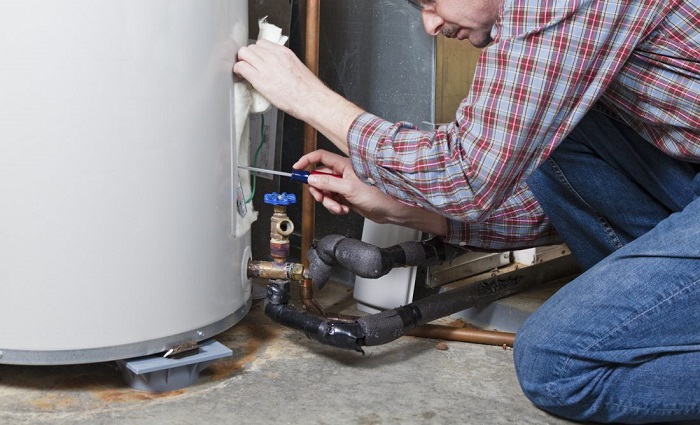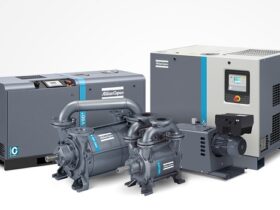When the temperature drops, the last thing you want is a boiler breakdown. Unfortunately, winter is the time when boilers are under the most pressure, working harder than ever to keep our homes warm. This often leads to problems.
In this article, we’ll look at the most common boiler issues in winter, why they happen, and what you can do about them. Whether you’re dealing with no hot water, strange noises, or low pressure, this guide will keep things simple and easy to follow.
Why Do Boilers Break Down More in Winter?
Boilers work year-round, but in winter they are used much more often. The extra demand can highlight existing issues or create new ones. Cold weather can also affect pipes, water pressure, and even the fuel supply in some cases.
Knowing the warning signs early can help you avoid a full breakdown and a costly emergency repair.
1. Frozen Condensate Pipe
One of the most common winter boiler problems is a frozen condensate pipe. This pipe carries waste water from your boiler to the outside drain. When temperatures drop below zero, the water inside can freeze, blocking the pipe.
Signs of a frozen pipe:
- Your boiler won’t start
- Gurgling sounds from the pipes
- An error code on your boiler display
What to do:
Pour warm (not boiling) water over the pipe to gently thaw the ice. Insulating the pipe can also prevent this from happening again.
2. Low Boiler Pressure
Low pressure is another frequent issue in winter. Boilers need the right water pressure to circulate heat around your home.
Signs of low pressure:
- Radiators not heating properly
- No hot water
- Pressure gauge below 1 bar
What to do:
Check for leaks around your system. If there are none, you can re-pressurise the boiler using the filling loop (usually found under the boiler). Always follow your manual for guidance.
3. Radiators Not Heating Up Properly
Radiators that stay cold at the bottom or top are a very common winter complaint. This is usually caused by trapped air or sludge inside the system.
Signs of radiator problems:
- Some radiators are hot, others are cold
- Uneven heating around the house
What to do:
Try bleeding your radiators to release trapped air. If that doesn’t work, your system may need a power flush to clear out built-up sludge.
4. No Hot Water or Heating
Few things are more frustrating than waking up to no hot water or heating. This can happen for several reasons:
- Faulty thermostat
- Broken motorised valve
- Low pressure
- Pilot light going out
What to do:
Check the thermostat first – sometimes it’s set too low or the batteries have died. If that’s not the issue, you may need an engineer to diagnose the problem.
5. Thermostat Issues
Thermostats control when your boiler switches on and off. In winter, faulty thermostats can cause major problems.
Signs of thermostat issues:
- Boiler not responding to settings
- Room temperature doesn’t match the thermostat setting
- Heating switching on and off unexpectedly
What to do:
Try replacing the batteries or resetting the thermostat. If it’s very old, it may be time for an upgrade. Modern smart thermostats can help you save money and avoid heating issues.
6. Strange Boiler Noises
If your boiler is making banging, whistling, or gurgling sounds, it could be a sign of trouble.
Common causes of noisy boilers:
- Air in the system
- Low water pressure
- Limescale build-up (known as “kettling”)
What to do:
Bleeding your radiators can help remove air. If it’s limescale, a boiler repair engineer may need to flush the system or fit a scale reducer.
7. Leaking Boiler
Leaks are never a good sign. A leaking boiler can be caused by:
- Corroded pipes or tanks
- Faulty pressure valve
- Broken pump seal
What to do:
Turn off your boiler and call an engineer immediately. Leaks can damage your home and lead to serious faults if ignored.
8. Pilot Light Keeps Going Out
Older boilers often have a pilot light that needs to stay on. If it keeps going out in winter, your boiler won’t work.
Causes of pilot light failure:
- Faulty thermocouple
- Draft blowing it out
- Gas supply problems
What to do:
You can relight it following the instructions in your boiler manual. If it still goes out, you’ll need a professional to investigate.
9. Frozen Pipes Leading to No Heating
It’s not just the condensate pipe that can freeze. In very cold weather, the pipes leading to and from your boiler can freeze too.
What to do:
Insulating your pipes before winter arrives can prevent this. If they’re already frozen, thaw them carefully with warm water or a hot water bottle.
10. Boiler Switching Off By Itself
If your boiler keeps turning off unexpectedly, it could be due to:
- Low water pressure
- Thermostat issues
- Blocked pipes or pump problems
What to do:
Check the pressure and thermostat first. If those look fine, an engineer will need to inspect the system.
How to Prevent Boiler Problems in Winter
The best way to avoid these common issues is regular maintenance. Here are some simple steps you can take:
- Get your boiler serviced annually
- Bleed your radiators before winter
- Check and top up the pressure if needed
- Insulate external pipes to stop freezing
- Upgrade to a newer, more reliable boiler if yours is very old
When to Call a Professional
While some problems (like bleeding radiators or topping up pressure) can be solved at home, many require a qualified heating engineer. Never try to fix gas-related issues yourself – it’s dangerous and illegal unless you’re Gas Safe registered.
If you’re unsure, it’s always safer to call in an expert.












Leave a reply